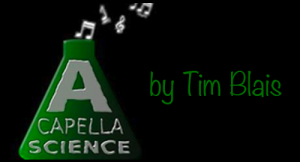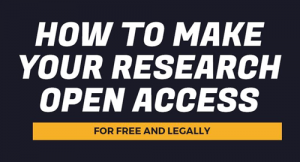Digital tools offer a variety of opportunities for optimising communication for research transparency and efficiency. These can be utilised to share and discuss recent findings with a wider audience, to optimise visibility and perception of your online presence or to engage and network with scientists in your own or a related discipline, to mention a few. This course will highlight and discuss some of the benefits of the digital era for the advancement of Science and what aspects to be aware of.

[three-fifths-first]
Objectives
- Learn how to promote your research topic via digital media
- Critically investigate tools for usability, functionality and liability
- Optimize research efficiency and transparency by using digital solutions for scientific project management, writing, reading & publishing
Course contents
- Principles of Open Science Communication
- Establishing an online presence as a scientist
- Using Social Media Channels like Facebook, Twitter & Co. in a Research Context
- Social Networks designed for Scientists
- Digital tools in the Research Workflow
- Privacy and Security Settings
- How to protect Intellectual Property in the Digital Age
- Develop your own Digital Strategy
Course duration: 1 day for an overview or 2 consecutive days (9am – 5pm)
Number of participants: 8-12
Methodology
Our courses are geared towards adult learning and use participatory approaches. The trainer encourages participants to add their experience and knowledge to the course content. Topics covered are backed by real examples and relate to the participants’ field of research.
Before the course, participants can submit specific questions and their own presentation examples by email. The course content will be adjusted to the specific needs and requirements of the participants.
Participants are handed out reading material to be discussed during the course as well as a course summary with their achievements.
Selected Digital Tools & Services
Altmetric measures the attention that research outputs receive from policy documents, mainstream news outlets, social media and online reference managers.
BrowZine consolidates thousands of peer-reviewed journals from hundreds of publishers and delivers them to your mobile device or computer.
Digital Science is a technology company serving the needs of scientific and research communities.
Resources
The Bibliomagician is a blog run by members of the Lis-Bibliometrics Committee with a particular focus on supporting LIS (Library and Information Science) professionals with the increasing volume of bibliometric queries, and training to be delivered.
Dimensions (free version) contains more than 100 million publications, ranging from articles published in scholarly journals, books and book chapters, to preprints and conference proceedings. All publications are contextualized with linked data sets, funding, publications, patents, clinical trials, and policy documents. You can also view associated categories, funders, institutions, and researcher profiles. | dimensions.ai/products/free/
Connected Researchers features new services, provides short reviews and keeps an extensive list of web-based tools for researchers; curated by .
The Missing Semester of Your Computer Science Education. An online curse on how to master the command-line, use a powerful text editor, use fancy features of version control systems, and much more! | missing.csail.mit.edu/
Innovations in Scholarly Communication is charting the changing scholarly landscape; curated by et al. at Utrecht University Library, NL
![]()
References
Cheplygina V, Hermans F, Albers C, Bielczyk N, Smeets I (2020) Ten simple rules for getting started on Twitter as a scientist. PLoS Comput Biol 16(2): e1007513. doi.org/10.1371/journal.pcbi.1007513

Read More

Read More

Read More

Read More

Read More

Read More

Read More

Read More